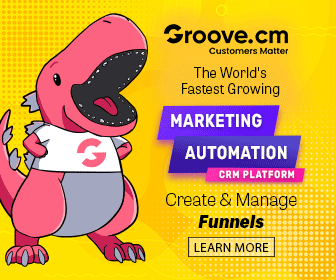Whether you are new to online marketing, or an online entrepreneur who wants to learn more about PPC, then you are in for a treat. In this online guide, you will get a plethora of information about PPC campaigns and how they work. Moreover, you get to learn how this Internet marketing medium can be very beneficial for your business.
What Is PPC?
Par Per Click, or also referred as PPC and Search Engine Marketing, is a form of online marketing that has been used by a great number of online entrepreneurs and marketers from all over the world.
Pay Per Click allows you to gain search engine traffic that can boost the conversion rates of your calls to action and increase sales. All paid search ads appear before organic listings on Google, Bing and Yahoo.
Pay Per Click is basically a sponsored Internet advertising scheme in which you (as an advertiser or marketer) have to pay a fee every time an internet user clicks one of your ads.
Generally, it is a technique of buying visits or leads to your website. As its name suggests, you do not have to pay for anything with PPC, unless a web searcher clicks your ad that is displayed in the search engine results for the keywords you are bidding on.
How Does It Work?
Basically PPC works like this, ads are created within the admin area of the network, for example, in Google Adwords.
Those ads then appear in search engine results based on a keyword bidding system that is in place in Adwords, each time a user clicks on an add, the advertiser is charged a certain fee by Adwords. The fees depend on the value of the keywords being bid on, the more competitive terms cost a lot more than those that are not.
There Are 3 Entities Involved In PPC:
- Searcher Engine Users – They are the people who use search engines to look for information. They are the ones that these ads are targeting based on specific keyword searches.
- Search Engines – Search Engines like Yahoo and Google have to cater to both advertisers and searchers simultaneously. With the help of search engines, searchers get to find solutions to their problems and queries, while advertisers are able to promote their products or services. In other words, they provide relevant and helpful result pages to the users, while driving highly targeted traffic to advertisers.
- Advertisers – Advertisers who use PPC get to set up their accounts with the particular keywords they want to target for their campaigns and bid limits of what they will pay each time their ad is clicked in the SERPS (search engine page results). Each ad is designed to target relevant keyword searches and to show up when people are searching for them.
Pay Per Click advertising mainly revolves around using the right keywords. To be successful in your PPC campaign, you need to put extra emphasis in keyword organization, grouping and research.
It is also of utmost importance to understand how the system works since paying per click can get very expensive, very fast.
Constant monitoring, measuring and testing is necessary to retain a positive ROI (return on investment).
The Best PPC Services
There are a lot companies that offer Pay Per Click management services, but, only these two can be considered the best:
- Google Adwords
- Bing Ads
The Benefits of PPC marketing
As a website owner or advertiser, you get to enjoy these perks:
- Greater Reach - With PPC marketing, you get an additional source of traffic to your website, which can enhance your online presence as well as help you establish your business as one of the leaders in your niche or industry.
- Increases In Revenue - For high converting sales pages and websites, PPC can yield a positive ROI, and instant sales, as opposed, to other methods, such as, SEO or social media marketing that takes time and a lot of effort.
- Quick Results - Unlike your traditional organic online marketing techniques, PPC advertising can be easily and quickly launched. This, in turn, will bring qualified leads and targeted traffic to your site in a very fast and efficient fashion.
- Quality Traffic - With PPC campaigns, you get to assign an array of ads for particular demographics and keywords. As a result, the quality of traffic coming to your website can be significant.
- Testing And Measuring Benefits - Your PPC campaign can be used to test the effectiveness of your Internet marketing in a lot of different ways. For instance, you can use it to perform an A/B test on your promo ads, banners and landing pages. Additionally, you may use these campaigns to test for the right keywords and key phrases to use in your campaigns with other marketing methods.









